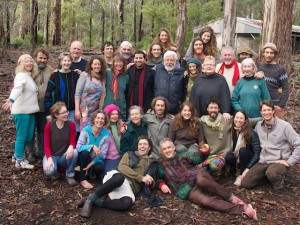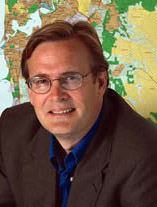
EcoEnco
Recently I spent a wonderful week at the EcoEnco retreat in south-western Western Australia with an intergenerational group of passionate, green, committed, like-minded people.
See: https://ecoenco.com

The focus of our work for that week was Deep Ecology.
As our work deepened and our friendships strengthened, I realised that not all of us had had the luxury of a full-time PhD in environmental ethics. I did mine back in the early 1990s at Murdoch University in the “salad days” when interdisciplinary teaching and learning still existed there. I was blessed with the supervisors from heaven: Patsy Hallen and Peter Newman. What a beautiful and heart-warming experience it was.
Thinking about the EcoEnco retreat made me want to dust off some of my writing on environmental ethics. So here it is, for all to ponder and enjoy.

Environmental ethics
In our attempt to make conservation easy, we have made it trivial.
Human beings are not prepared intellectually for the extension of the social conscience from people to land.
Roderick Nash, The Rights of Nature, 1989.
Assaults on the rational comprehensive model of planning mirrored wider societal changes. By the middle of the Twentieth Century, it became clear – to philosophers and environmentalists alike – that the main approaches of traditional Western moral thinking failed to recognise the intrinsic value of the nonhuman world or Nature. Many identified a need for a significant overhaul of the philosophical tradition. The dominant Western view, they argued, unjustifiably discriminated against those who were outside the privileged class of humans. This Workbook’s contents to this point reveal that most mainstream ethical thought is primarily anthropocentric, that is, it focuses on ethical relationships between human beings and ignores the nonhuman or greater than human natural world. By the early 1970s, environmentalists and philosophers began to identify the entrenched human-centredness (or human chauvinism) of mainstream Western ethical thought.
Environmental ethics seeks to redress this omission. According to Timothy Beatley, author of Ethical Land Use (1993), environmental ethics is the most fundamental aspects of the relationship between humanity, other life forms and the Environment or Nature, as well as the moral obligations of humanity to the Earth community. It is the discipline in philosophy that addresses the moral relationships of human beings to and the value and moral status of the environment or Nature. It is a set of principles, values or norms relating to the ways we interact with our physical or `natural’ environment that should not be seen as a set of invariant moral principles for all dilemmas.
Because anthropocentrism is the default ethic in traditional Western ethical thought, it has been a challenge for environmental ethics to carve out a distinct discipline within philosophy. And, as environmental ethics has progressed, it has developed many sub-disciplines with distinctive characteristics and views.
Emergence of the field of environmental ethics
Environmental ethics has been around for a long time. It is not a new development in the history of philosophy. There has been sustained philosophic reflection since the 1970s, with some important influences decades earlier. Early influences were scientists like Rachel Carson, who called for a restraining device on `technological man’, claiming that Nature does not exist for the convenience of `man’. From the first Earth Day in 1970, environmentalists continued to urge philosophers to consider philosophical aspects of environmental problems. Two seminal papers encouraged the development of environmental ethics: Lynn White, Jr.’s `The Historical Roots of our Ecological Crisis’ (1967) and Garrett Hardin’s `Tragedy of the Commons’ (1968). However, one highly influential early book, Aldo Leopold’s classic, Sand County Almanac (1949), is credited with bringing the philosophy of environmental ethics into the modern world. That book explicitly claimed that the roots of the ecological crisis were philosophical (1949). This was a radical departure – both for philosophers and for environmentalists.
Aldo Leopold: father of recent environmental ethics
Aldo Leopold (1887-1948) was just the type of man who could tackle the project of building a bridge between environmentalism and philosophy. He was an American author, scientist, ecologist, forester and environmentalist, as well as a professor. The Land Ethic (1949), a highly popular book, examined in a holistic way the inadequacy of moral individualism in light of ecological interdependence. It also confronted the inadequacy of sentientism.18 Leopold’s clear views were expressed in deontological terms. An action is right if it preserves integrity and beauty of the biotic community. It is wrong if it tends otherwise.
These views were strongly linked to Leopold’s view of interdependence. He argued that, `All ethics rest on a single premise: the individual is a member of a community of interdependent parts’. Further, `A moral being respects a living thing’.
Approaches to environmental ethics: different philosophical and political stances
Over time, environmental ethics has developed diverse philosophical and activist qualities. Radical environmental ethicists seek to reinvent and change our perceptions of our relationships with and responsibilities to Nature. Those of a more Reformist bent seek to adapt and extend conventional ethical frameworks. Many other views comprise the philosophy of environmental ethics, including Deep Ecology discussed later in these materials. One philosophical position unites all, however: humans are not simply individuals but are connected to, embedded in and in relationship with Nature.
Fundamental principles of environmental ethics
American planning academic, Timothy Beatley, captured the essence of the new field of environmental ethics from a planning perspective when he contended that, `all land-use decisions invariably involve ethical choices’. His work is an examination of the ethical dimensions of land-use decisions and policy, on the premise is that all land-use decisions invariably involve ethical choices. Decisions about land use raise fundamental and complex moral and ethical issues. Yet, claims Beatley, the existing normative ethical framework traditionally used to guide such decisions is narrowly economic and utilitarian. Further, the deeply anthropocentric underpinnings of planning make ethical decision making difficult. His work, as educator and activist, seeks to expand the ethical foundation for land-use decisions by proposing a set of tentative principles for ethical land use.

Environmental ethics addresses the ethical issues covered poorly by traditional ethical approaches. It explicitly addresses the value of Nature, the rights of the nonhuman (or greater-than-human) world and our relationships with and responsibilities for Nature. Among environmental ethics’ important contributions is a recasting of the `value’ of Nature, especially with respect to other people and cultures.
Different kinds of value
Understanding value is very important in environmental ethics. Its Latin meaning is `to be worthy, to be strong’. Thus, environmental ethicists ask what something is worth to us. Does it have intrinsic value – the value of an object independent of the presence of the valuer? Alternatively, does it have inherent value, which requires the presence of a valuer who can appreciate object or experience? On the other hand, is its value (as with most anthropocentric approaches) instrumental: the value of object or experience serving as means to accomplish a goal? Appreciating the nonhuman world in terms of its intrinsic value is a radical shift from the deeply anthropocentric philosophical formulations of mainstream ethical thinking discussed above.
Moral or ethical considerability
Another aspect of environmental ethics, related to the ethic of caring is the subject of considerability. Moral or ethical considerability asks the radical question, Who or what deserves consideration? Who or what should be `counted’?
Further, it proceeds to define the criteria of deservability. This approach invites us to see the scope of our moral relationships as greatly broadened to include the following categories of beings:
- Fellow human beings throughout the world;
- Future generations; and
- Nonhuman or greater-than-human life or beings.
At one end of the considerability spectrum, you could argue that only people deserve consideration. At the other end, you could argue that any organism with an interest in its own preservation and which makes plans for the future is deserving of consideration. Environmental ethicists ask how far we can defend moral or ethical considerability. Should ethics be only human-centred, animal-centred, life-centred, everything-centred, or should it extend to the biosphere as a whole (ecological holism)?
The considerability spectrum, shown below in the table below, is one way of depicting who or what could be worth of moral or ethical consideration as part of our moral or ethical `community’.
| Only Humans Human beings at the centre of one’s worldview (anthropocentrism) |
All sentient Beings Who have the capacity to suffer(feel pleasure or pain) |
All biotic entities Who are alive |
Inanimate entities “¢Air “¢Water “¢Soil “¢Mountains “¢Beauty in landscapes |
All entities “¢ Wildness “¢ Aesthetics “¢ Ecosystems and species |
The Considerability Spectrum:
Who or what is worthy of consideration as part of our moral or ethical community?
Deep Ecology
Deep Ecology is one of the principal schools of contemporary environmental philosophy. Its founder, Norwegian philosopher Arne Naess, intended it to be a call for a fundamental rethinking of environmental thought that would go far beyond anthropocentric (human-centred) and reform environmentalism. Instead of limiting itself to the mitigation of environmental degradation and sustainability in the use of natural resources, Deep Ecology is self-consciously a radical philosophy that seeks to create profound changes in the way we conceive of and relate to Nature.
Three meanings of the term `Deep Ecology’
The term `Deep Ecology’ has three distinct meanings:
Meaning 1: A deep questioning about environmental issues, probing the fundamental causes of environmental problems and the underlying worldview of environmental policies. It reflects critically on those fundamental assumptions and refers to any environmental philosophy that critiques deep-seated worldviews and proposes a radical alternative.
Meaning 2: A platform, first formulated as eight principles by Arne Naess and George Sessions in 1984:
- The well-being and flourishing of human and nonhuman life on Earth have value in themselves (synonyms: intrinsic value, inherent value). These values are independent of the usefulness of the nonhuman world for human purposes.
- Richness and diversity of life forms contribute to the realization of these values and are also values in themselves.
- Humans have no right to reduce this richness and diversity except to satisfy vital needs.
- The flourishing of human life and cultures is compatible with a substantial decrease of the human population. The flourishing of nonhuman life requires such a decrease.
- Present human interference with the nonhuman world is excessive, and the situation is rapidly worsening.
- Policies must therefore be changed. These policies affect basic economic, technological, and ideological structures. The resulting state of affairs will be deeply different from the present.
- The ideological change is mainly that of appreciating life quality (dwelling in situations of inherent value) rather than adhering to an increasingly higher standard of living. There will be a profound awareness of the difference between big and great.
- Those who subscribe to the foregoing points have an obligation directly or indirectly to try to implement the necessary changes.
This platform aims to articulate Deep Ecology’s central views and values, based on a common philosophical core while remaining open to a plurality of worldviews and policies.
Meaning 3: A philosophy of Nature.
Deep Ecology and shallow ecology
Arne Naess distinguished between two forms of environmentalism: (1) the `long-range deep ecology movement’ and (2) the `shallow ecology movement’. Philosophically, `deep’ referred to the level of questioning of our purposes and values; it involves deep questioning, right down to fundamental root causes. The short-term, shallow approach stops before fundamental change, often promoting technological fixes based on the consumption-oriented values and methods of the industrial economy. The long-range deep approach involves redesigning our whole systems based on values and methods that truly preserve the ecological and cultural diversity of natural systems.
Wendy,
Your sage presence at EcoEnco was a privilege … I am delighted that you were able to join us … the magic of the week would not have been what it was without.
Ecological masculinism is emerging along side the Big Three of Social Ecology, Deep Ecology and Ecofeminism … largely on account of your belief in me, the rigour of your good mind, and our collective efforts to be the change. Thank you … truly.
I’m honoured to have had that special time with you amongst a cathedral of Karris and look forward to more sojourns soon.
Paul
Oh, dear, dear Paul! Of course! Ecological masculinism should be in this piece. You are perfectly correct! Respectfully, Wendy (who should have known better…)